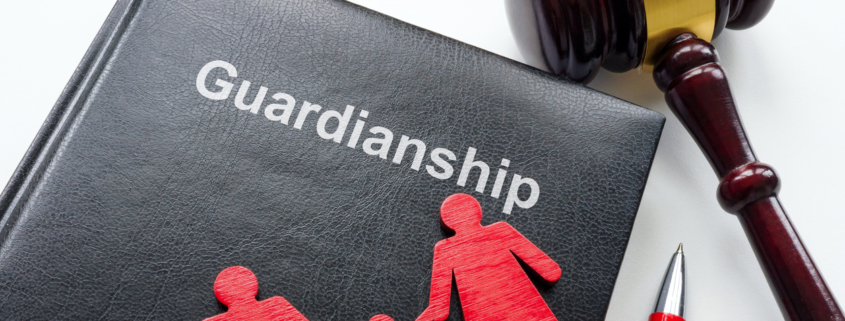Understanding the Legal Process When Family Members Disagree About Who Should Be Guardian
Orlando is a growing community where families face many of the same difficult decisions seen across Florida. One of the most emotionally charged and legally complex situations is when a family cannot agree on who should be appointed guardian for a loved one. As a Guardianship Attorney in Orlando, I have seen both sides of this situation—concerned relatives who want to ensure a parent or vulnerable adult is protected, and others who fear their loved one’s rights or finances could be mismanaged. These disagreements can turn into contested legal battles that end up in court.
My name is Beryl Thompson-McClary, and I assist clients throughout Orange County, Florida, in resolving these disputes with both legal clarity and compassion. If you are involved in a contested guardianship matter, or suspect that one is coming, you need solid legal representation from someone who understands how the Florida courts make these decisions. Call me at 1-888-640-2999 to schedule a consultation so we can talk about your case and your concerns.
When Guardianship Becomes Contested
Under Florida law, guardianship is meant to protect individuals who cannot make important decisions for themselves due to incapacity. This includes seniors with dementia, adults with intellectual disabilities, and others with serious medical or cognitive conditions. But while the goal is to protect the vulnerable person, the question of who should be appointed as guardian is not always simple.
Disputes arise for several reasons:
- More than one family member wants to serve as guardian.
- There is concern that a proposed guardian is not acting in the ward’s best interests.
- The proposed guardian has a history of financial mismanagement or strained relationships.
- Family members disagree on the ward’s level of capacity.
These cases are governed by Chapter 744 of the Florida Statutes, which outlines how a court determines incapacity, who can serve as guardian, and what happens when there is disagreement.
The Legal Standard for Appointing a Guardian in Florida
Before a guardian is ever appointed, the court must first determine that the person is indeed incapacitated. This is a formal legal process. A petition must be filed with the court, followed by the appointment of a three-member examining committee, which typically includes at least one medical professional. The committee evaluates the person’s ability to manage both personal and financial matters.
Under Fla. Stat. §744.331, the court will hold an incapacity hearing where the examining committee’s findings are presented. The person alleged to be incapacitated (the proposed ward) is entitled to legal representation and can contest the proceedings. If the court finds that the person lacks the capacity to care for themselves, it will appoint a guardian.
When more than one person petitions to serve as guardian, or when someone objects to a proposed guardian, the court must evaluate each petitioner and choose based on the best interests of the ward.
How the Court Chooses Between Competing Guardianship Petitions
Florida law provides a list of preferences but also gives the court significant discretion. The court is not bound to pick the first petitioner. It will consider a range of factors, including:
- The petitioner’s relationship to the ward
- Any history of abuse, neglect, or financial misconduct
- Criminal background and credit history
- Ability to manage complex financial and health care decisions
- The expressed wishes of the ward (if known)
The court may also consider whether one party is better suited due to proximity, availability, or relevant experience.
If family members cannot agree and the court finds all proposed guardians unsuitable, it may appoint a neutral third party or a professional guardian. Under Fla. Stat. §744.312, professional guardians must meet specific training and registration requirements.
Disputes Often Involve Financial Control and Emotional Tension
It’s important to understand that contested guardianship cases are not always about greed. Sometimes they involve longstanding family tensions, different perceptions of what’s best, or sincere fears that another family member will misuse funds or isolate the ward.
I’ve worked with clients who were genuinely concerned for their parent’s well-being, and I’ve also seen cases where people used guardianship as a tool to gain control over money or cut others out of the decision-making process. That’s why it is so important to come to court prepared with evidence, not just emotion.
The Role of Mediation in Contested Guardianship Cases
Florida courts strongly encourage mediation in family disputes, including contested guardianships. Mediation gives all parties a chance to discuss the issues with a neutral facilitator. It can lead to agreements on limited guardianships, shared responsibilities, or appointment of a neutral guardian.
While mediation can help reduce legal costs and family friction, it’s not always successful. If parties cannot agree, the court will ultimately decide who is appointed as guardian.
What the Judge Looks for in a Contested Guardianship Case
In every guardianship case, the court’s main concern is the best interest of the ward. Judges are not interested in family drama—they are focused on evidence.
You need to be prepared to demonstrate:
- The incapacity of the proposed ward (through evaluations and documentation)
- Your ability to responsibly fulfill the guardian’s duties
- Any misconduct or unfitness of another proposed guardian (with proof)
Your testimony, as well as the testimony of physicians, caregivers, and family members, can make or break your petition.
If you’re opposing someone else’s petition for guardianship, it’s important to do more than object—you need to show the court why that person is unfit and offer an alternative plan that protects the ward.
Why Legal Representation Matters
Contested guardianship cases can quickly become overwhelming. These cases involve court hearings, medical records, legal filings, and emotional family dynamics. Whether you are seeking to be appointed guardian or defending yourself against allegations of unfitness, I can help you build a strong, clear case.
I handle guardianship disputes throughout Orange County, Florida. When you call my office at 1-888-640-2999, I’ll take the time to understand your family history, your concerns, and the details that will matter to the judge. Together, we can protect your loved one and bring clarity to a difficult situation.
Frequently Asked Questions
What happens if more than one person files to be a guardian?
The court will review both petitions and decide who is best suited to serve. The judge looks at each person’s background, their relationship to the ward, their ability to handle responsibilities, and any concerns raised about their conduct. It is not a popularity contest—the court’s job is to protect the ward.
Does the ward have a say in who becomes their guardian?
Yes. If the ward is capable of expressing a preference, the court will take that into account. However, if the court finds that the person lacks the capacity to make an informed decision, the judge will rely more on evidence and testimony from others involved.
Can a professional guardian be appointed if family members disagree?
Yes. If family members are unable to agree or if all family petitioners are found unfit or unqualified, the court may appoint a neutral professional guardian. These individuals are regulated by the state and must meet certain criteria, including passing background checks and completing guardianship training.
What should I do if I believe a proposed guardian is unfit?
If you have evidence that a proposed guardian has a criminal history, a history of substance abuse, financial mismanagement, or elder abuse, you should present that to the court. This can be done through affidavits, records, or testimony at the guardianship hearing.
Can guardianship be shared between family members?
Yes. In some cases, the court may appoint co-guardians. This arrangement can work well when both parties are cooperative and committed to the ward’s best interests. However, it can also lead to further disputes if the co-guardians don’t agree on important decisions.
What if the current guardian is not doing a good job?
If you believe a guardian is mismanaging funds, isolating the ward, or failing to provide adequate care, you can file a petition with the court to review or remove the guardian. Florida law allows for removal of a guardian under Fla. Stat. §744.474 if there is evidence of misconduct or failure to perform required duties.
How long does a contested guardianship case take?
The timeline can vary depending on the complexity of the case, how much evidence needs to be presented, and whether mediation is successful. Some cases can be resolved in a few months, while others may take longer if multiple hearings are needed.
Do I need an attorney for a contested guardianship?
Absolutely. These cases involve complicated legal and procedural rules, and the stakes are high. Whether you’re trying to protect a loved one or defend yourself against false claims, having an experienced Orlando Guardianship Attorney can make all the difference.
Contact Orlando Guardianship Attorney Beryl Thompson-McClary at 1-888-640-2999 For A Consultation.
If you are involved in a contested guardianship case—whether you’re seeking to be appointed as guardian or challenging someone else’s petition—you deserve experienced legal guidance from someone who knows how Florida courts handle these complex situations. I’ve helped families on both sides of guardianship disputes protect their loved ones while respecting the law and each other.
Let’s talk about your situation and what steps we can take to protect the person at the center of it all.













